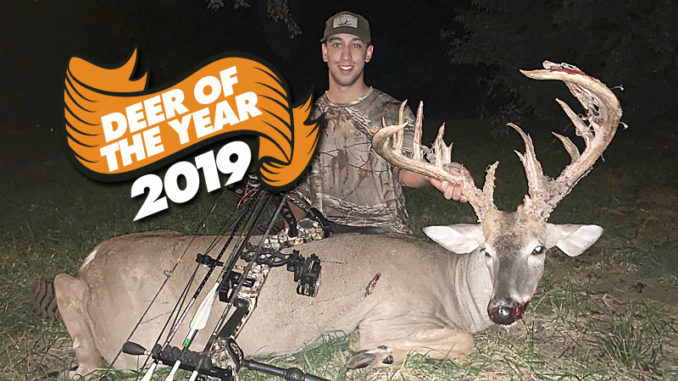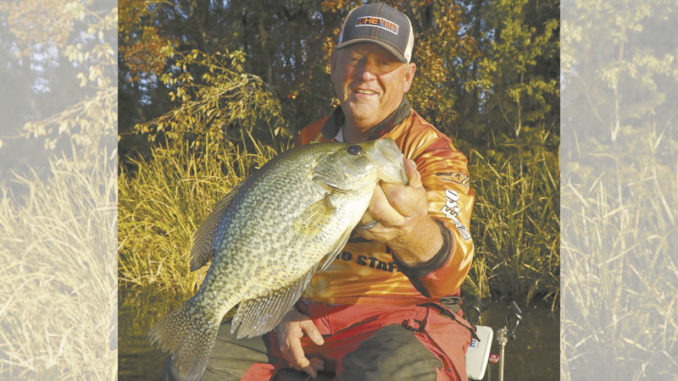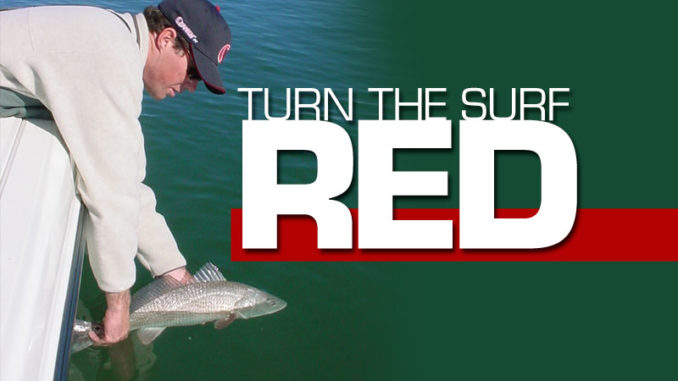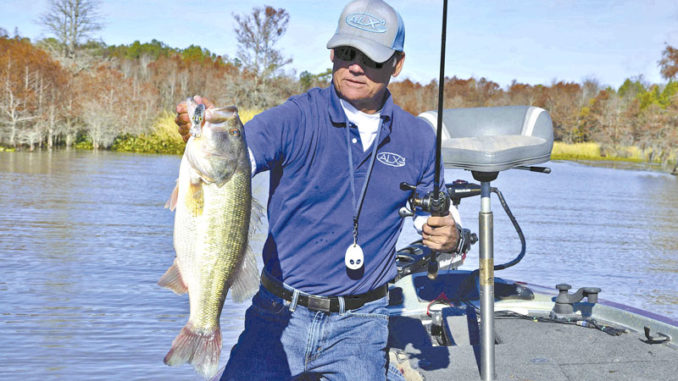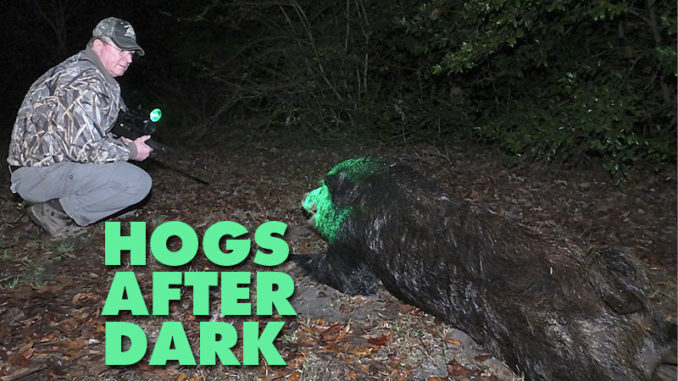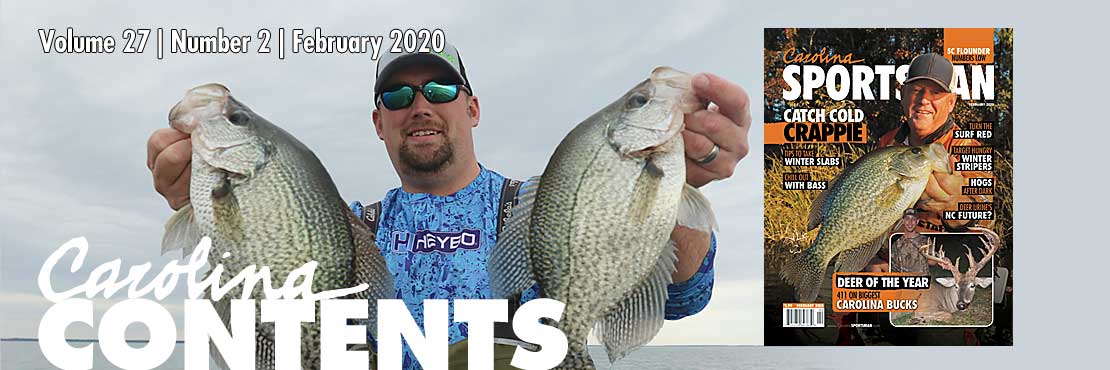
Features from February 2020
- The 2019 season was a big one for big bucks in the Carolinas, including one new state record.
- Don’t wait for spring to start loading your cooler with Carolina crappie.
- Cold weather fills the North Carolina surf with redfish.
- Slow down and fish with big baits near deep water for February bass.
- If you’re serious about thinning out wild hogs on your property, get the right kind of equipment and take them off after dark.
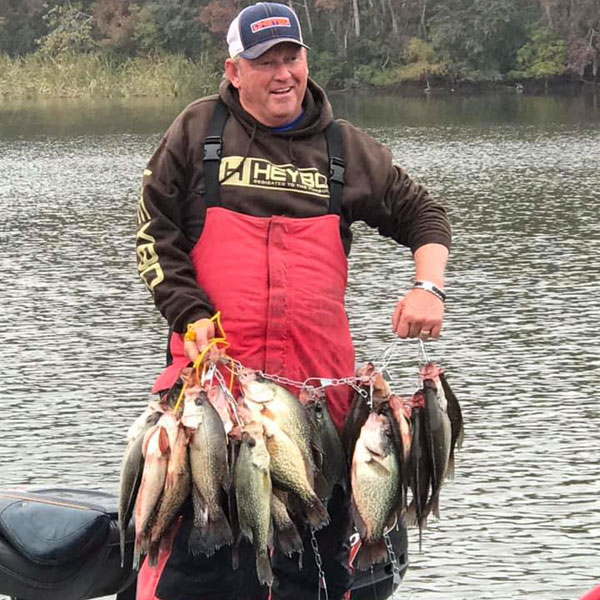
Columns - February 2020
- Carolina winters feature some cold days, but mostly, there are only a few at a time, with more moderate and occasionally downright warm days separating them. Still, it’s nice to come inside for lunch or dinner and have a meal that is tasty, filling and warms you to the soles of your feet.
- Improved electronics that are easier to rig onto kayaks are making things simple for anglers fishing from plastic boats.
- Despite the winter weather typically associated with February, the trend for improved fishing brings tangible results in February to the Santee Cooper lakes. February usually begins with largemouth bass and crappie in a sluggish “can-be-caught” mode, but by the middle to the end of the month, some early, prespawn movement occurs.
- I have long believed that the best time to catch truly big bass — the bass of a lifetime — is before most other fishermen even give it a thought.
- Anglers can get information on the hottest fishing holes and lures from a variety of sources, but it rarely beats their own intuition when it comes to catching fish.
- February can be a brutal month for anglers in the Carolinas, but one fish that is available year-round and bites well during cold weather is sheepshead. They are in our inshore waters as well as around nearshore and offshore reefs this time of year.
- Rural properties contain roads, fields, ditches and all kinds of other features that become weathered over time and need attention. And hunters can’t always maintain shooting lanes, food plots, and trails with hand tools.
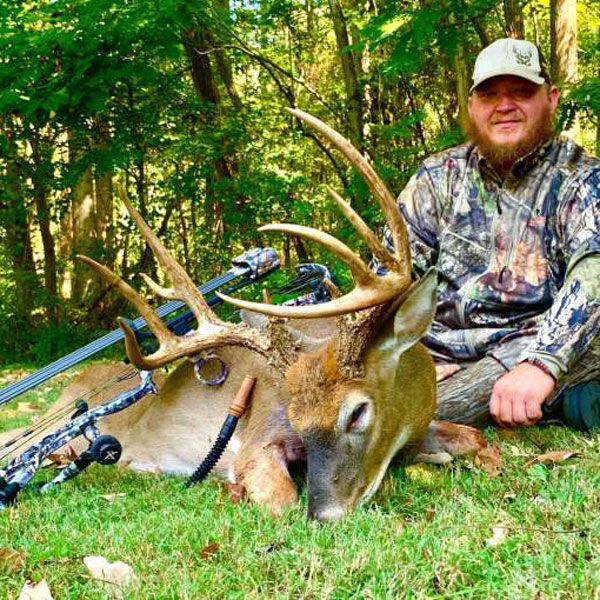
Outdoor Update - February 2020
- According to recent studies, South Carolina's flounder population is in decline. Regulation changes for anglers are likely coming.
- North Carolina anglers will have a slot limit on ocean-caught striped bass beginning Jan 1, 2020.
- NC man is December Bag-A-Buck winner
- Bryan Justice of Arden, N.C. caught an 8.2-pound trophy walleye while bass fishing in Lake James.
- To keep CWD out of North Carolina, wildlife agency considers banning deer-urine products.
Hot Spots - February 2020
- It’s still way too early to rush around proclaiming, “They’re back,” but fishermen are seeing striped bass return to the rivers and creeks around Wilmington, N.C.
- Regardless of the temperature, a good February fishing forecast should always end with light and variable winds for offshore and nearshore fishermen.
- Guide James McManus of Sylva, N.C., expects smallmouth bass fishing on North Carolina’s Fontana Lake to be on the rebound this winter.
- February may feel like just another cold month to some anglers, but crappie fishermen know that the subtle changes occurring are stacking the deck in their favor.
- Winter has fully set in across the Carolinas, with typically cool days and some freezing nightly temperatures. Yet the Carolinas are also known for a few 70-degree days mixed in throughout the winter, and that makes a day on the water more than just appealing.
- Sportsmen attend boat shows and fishing seminars across North Carolina in February, but if all they do is learn, they’re missing out on some great winter fishing for striped bass on three of the coastal river systems that drain northeast and east-central North Carolina: the Neuse, Pamlico and Roanoke.
- Guide Jerry Hill of Lexington, N.C., has some simple advice for fishermen targeting striped bass on North Carolina’s High Rock Lake this month.
- February is a really good time to boat a trophy striped bass on South Carolina’s Lake Hartwell, according to retired guide Rick Owen, but you have to get a lot closer to the shoreline than you might think to find one.
- February is a month of change: cold one day, warming the next. Spring-like temperatures can be followed quickly by snow, ice or freezing rain. But fishermen still go fishing and fish still bite — if you know how to catch them in varying conditions.

